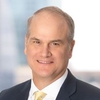Welcome to BARBRI, the trusted global leader in legal education. Continue to access the same expert-led Strafford CLE and CPE webinars you know and value. Plus, explore professional skills courses and more.
About the Course
Introduction
This CLE webinar will provide real property counsel with a detailed explanation of common area maintenance (CAM) provisions in commercial leases. The panel will outline which costs are standard inclusions and what can and should be excluded. The panel will offer alternative methods of managing CAM costs such as capped CAM costs, fixed CAM costs, and gross leases.
Description
Commercial leases often require tenants in a multi-tenant development (such as a shopping center or office building) to pay CAM charges in addition to monthly rent. These lease provisions often are misunderstood or taken for granted by landlords and tenants and, as a result, are frequently violated, knowingly or otherwise.
Sophisticated tenants require CAM charges to be "actually paid or incurred" or "expended" by the landlord to be reimbursable, and they are careful to prohibit landlords from passing their overhead on as disguised CAM charges. To guard against this practice, tenants should negotiate (and then review) their leases carefully, require landlords to deliver "reasonably detailed statements" of CAM charges as often as the lease requires, and should scrutinize those statements to ensure that all charges are allowed by the lease.
CAM charges often include property management fees. In addition, most leases permit the landlord to estimate CAM charges and force tenants to pay their share of those estimates monthly. Generally, they require the landlord to reconcile or justify the actual CAM charges to its tenant after the end of each year. Commercial landlords that also manage the project themselves often charge tenants, in addition to CAM expenses incurred, an arbitrary, "industry standard" percentage of the rent as "a property management fee," even though the lease does not expressly provide for that, and no third-party management fees are paid or incurred by the landlord.
When the CAM charges are based on actual costs, a tenant might want to negotiate a cap on how much they will be required to pay for their share of common area maintenance. Putting a cap on CAM charges helps protect the tenant from their lease expenses increasing outside of their budget or sudden surprises at the beginning of the year. In turn, this adds some risk to the landlord to cover additional expenses themselves.
With fixed CAM charges, property owners set a flat fee for common area maintenance and usually add small annual increases to that fee to cover the cost of inflation. Tenants may still want to review the property expenses to ensure their CAM charges aren't significantly higher than they should be. Fixed CAM charges can either apply to property taxes, insurance, and actual maintenance costs or only to maintenance costs while leaving the property taxes and insurance adjustable.
Listen as our authoritative panel discusses best practices in negotiating CAM provisions, what types of provisions to include, and when to choose between a capped or fixed cost CAM provision.
Presented By

Mr. Fishman focuses his practice on representing real estate developers, owners and secured lenders in the acquisition, sale and financing of commercial properties. He has an active leasing practice representing owners of several major office buildings, as well as tenants in lease and sublease transactions. His expertise includes letters of intent, tenant improvement work agreements, security deposits/letters of credit, signage rights, expansion and contraction rights, permitted transfers, operating expense audits and lender and master landlord recognition agreements.

Ms. Gallant’s practice is focused on business and real estate transactions, estate planning, and probate. Her transactional practice is supported by a strong litigation background.

Mr. Lang is a member of the firm’s Real Estate Practice. On the leasing side, he represents landlords, tenants, sublandlords, and subtenants in connection to office leases and subleases, as well as retail leases for national retailers. With respect to acquisitions and dispositions, he represents buyers and sellers of commercial properties across all asset classes. On the lending side, he represents lenders and borrowers in connection to complex real estate financings (including both mortgage and mezzanine loans) related to the acquisition, construction or refinancing of commercial properties throughout the U.S. Mr. Lang has also represented various financial institutions in connection with restructurings of distressed assets including workouts, forbearance agreements, notes sales, deed-in-lieu of foreclosure agreements, and litigation related to foreclosures of real property.
-
This 90-minute webinar is eligible in most states for 1.5 CLE credits.
-
Live Online
On Demand
Date + Time
- event
Tuesday, April 1, 2025
- schedule
1:00 p.m. ET./10:00 a.m. PT
- Common area maintenance provisions
- Most common inclusions
- Issues for landlords
- Issues for tenants
- Capped CAM
- Fixed cost CAM
- Most common inclusions
The panel will discuss these and other key topics:
- What types of provisions are most likely to be included in the CAM clause?
- What are a landlord's greatest concerns in negotiating CAM?
- What are the tenant's most significant issues when negotiating CAM?
- When should stakeholders consider capped CAM vs. fixed CAM charges?
Unlimited access to premium CLE courses:
- Annual access
- Available live and on-demand
- Best for attorneys and legal professionals
Unlimited access to premium CPE courses.:
- Annual access
- Available live and on-demand
- Best for CPAs and tax professionals
Unlimited access to premium CLE, CPE, Professional Skills and Practice-Ready courses.:
- Annual access
- Available live and on-demand
- Best for legal, accounting, and tax professionals
Unlimited access to Professional Skills and Practice-Ready courses:
- Annual access
- Available on-demand
- Best for new attorneys
Related Courses

Negotiating Construction Liability Claims: Architects, Engineers, and Other Design Professionals
Tuesday, April 7, 2026
1:00 p.m. ET./10:00 a.m. PT

Solar Ground Leases: Landowner and Developer Due Diligence, Negotiation, and Drafting Strategies
Thursday, March 26, 2026
1:00 PM E.T.
Recommended Resources

Explore the Advantages of Consistent Legal Language
- Learning & Development
- Business & Professional Skills
- Talent Development

How to Build a Standout Personal Brand Without Sacrificing Billable Hours
- Career Advancement

